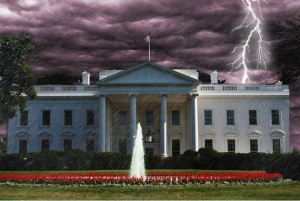By: Victoria Manuel
From video at the bottom: “In 2010, 468 US troops committed suicide which surpassed the 462 US troops that were killed in combat that year. The number of troops committing suicide has been on the rise and many blame it on soldiers feeling detached from reality. Matthis Chiroux, war veteran and anti-war activist, helps us analyze why these numbers are on the rise.”
Chiroux perhaps says it best when he states, “Being a veteran is perhaps one of the most alienating experiences in this country.”
Most people have some sort of iconic imagery of what the military means, especially in America, which is framed as an infrastructure of discipline, sacrifice, duty, and, most importantly, patriotism. We see commercials on a daily basis depicting soldiers being honored with much-deserved praise for their commitment to protecting our country that we sometimes forget that war and the military is a very traumatizing institution that leaves many of the soldiers coming back and dropped into a civilian life unprepared to deal with re-acclimating.
While this isn’t the only reason as to why so many soldiers are committing suicide, it certainly informs the general atmosphere as to why we’re seeing more soldiers kill themselves than they are on the battlefields. Like the RT segment comments, many of these soldiers are not committing suicide on the battlefield or out of the threat of being shipped out to Afghanistan or Iraq, or anywhere else for that matter, but many are committing suicide without ever having seen combat. This is axiomatic of the endemic problem not within the military but within the culture that the military occupies.
While glorifying and building up the imagery of the military with patriotic sloganeering and rhetoric, society fails to realize the uninformed and, to a certain extent, unexplored psychology of what it means to join the military, which, as Chiroux makes reference to, really tries to differentiate a soldier from normal civilian life through imposing training techniques that invariably alienate a soldier from re-adapting back into society, leaving many to go through cycles of psychological disorders that, as the statistics suggest, lead to fatalistic results.
This is not to say that the military does not serve a purpose. Unfortunately we do not live in an age where foreign threats are not a contingency within modern policy–nor have we ever, for that matter. But rather than misleading individuals into joining the military with patriotic slogans without giving the full picture, we fail as a society in seeing what it is like for these soldiers to acclimate back into society, and thus almost facillitate an environment that condones them to go through this isolating process that can and in many cases does kill them. If we are to help these soldiers, as they deserve our help since they sacrificed themselves for the ideal of protecting our country, then we need to acknowledge the horrible effects of war so that we can begin to heal the psyhological scars endemic from those who fight.





